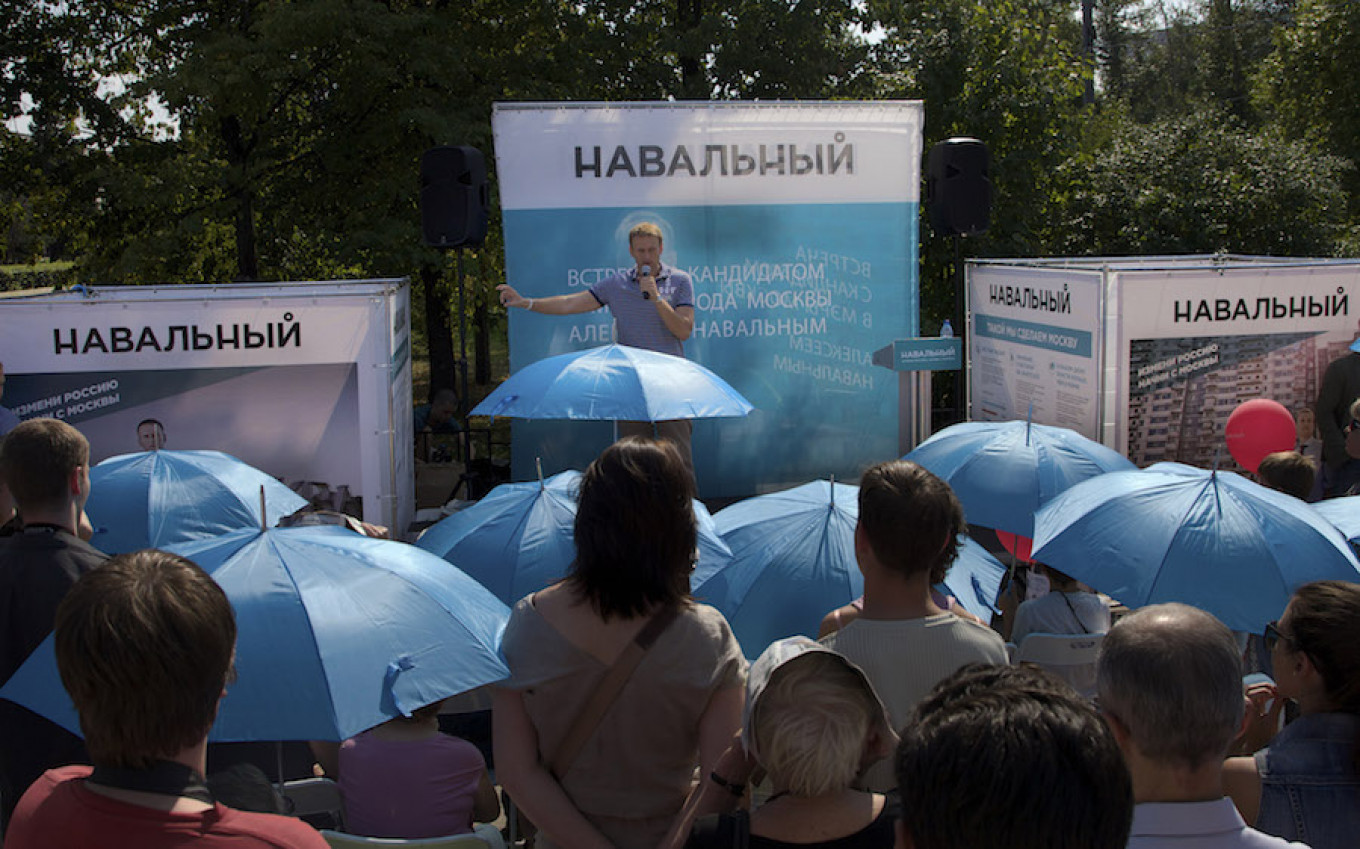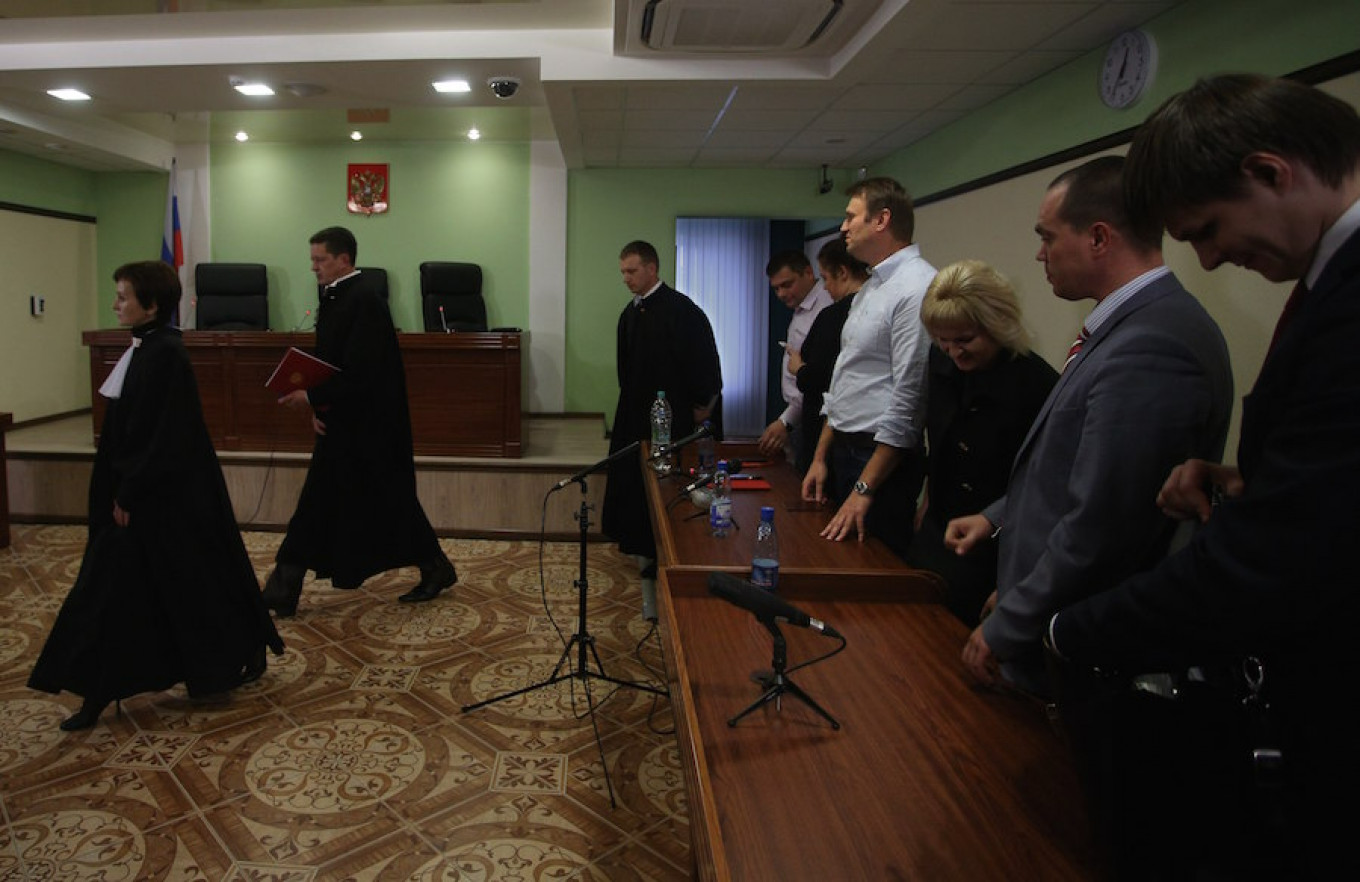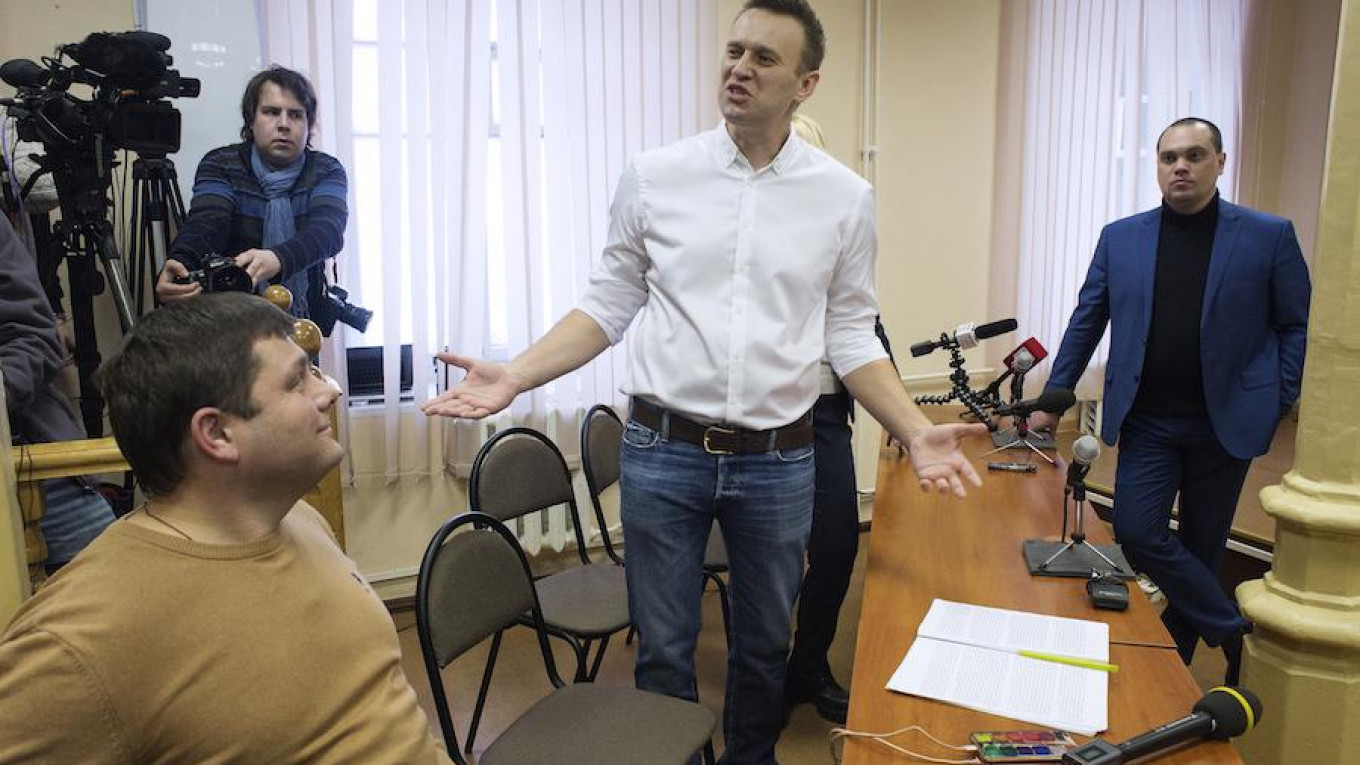Over the past four years, Alexei Navalny has given many closing statements — seven, to be exact. For his last speech in a courtroom in Kirov, the opposition leader might just as well have taken out his old notes.
“The emotions are very similar,” he said in court earlier this month. “But it would probably be strange to repeat myself. It wouldn't be right.”
Presumably, it wasn't just Navalny who experienced deja-vu. Those attending the repeat trial of the KirovLes case must have had similar feelings. The same courtroom, the same prosecutors, the same lawyers and the same defendants, Navalny and Pyotr Ofitserov — little seemed to have changed since the first trial into the alleged embezzlement of timber in 2013.
After three months of both sides presenting practically identical arguments and witnesses as back then, the court's verdict on Wednesday was also predictably familiar. Navalny was handed down a five-year suspended sentence — part of which he has already sat out — and a 500,000 ruble fine ($8500), which he previously already paid.
The retrial was the result of a Russian Supreme Court order in November, following a European Court of Human Rights ruling that the original KirovLes case was unlawful. More widely, KirovLes 2.0 was seen as a moment of truth for Russia ahead of the 2018 presidential elections: Would the Kremlin allow Russia's most famous opposition activist to run?
Before the court could give its answer, Navalny had already given his. In December, he caught everyone by surprise by announcing his candidacy for the presidential elections in an online video.

It instantly turned the court room into Navalny's political stage and Navalny its chief trouble-maker. After the court announced he would have to stay at the Hilton Hotel for the duration of the case, he asked who would pick up the bill and whether it covered the mini-bar. “At least organize an excursion around Kirov, invite me over to your home for a cup of tea or something,” he told the judge, who at times seemed to struggle to maintain his composure in the face of such brashness.
According to political analyst Alexander Kynev, the Russian authorities don't know how to deal with him. “Navalny is trolling them: he does something to provoke a reaction, and they do it, like a bull at a corrida,” Kynev says.
But every case against him results in more publicity. “They don't understand that the worst thing that can happen to an opposition figure is silence,” says Kynev.
Mr. President?
The
allegation that Navalny had conspired to steal timber from the
state-owned KirovLes company first surfaced in 2012, and was widely seen
as a response to Navalny’s major role in the previous year’s
anti-government protests. In the first trial, the court gave him a
five-year prison sentence, thereby disqualifying him from running for mayor
under a federal law that bans those convicted of “serious crimes” from
participating in elections.
Following street protests, the ruling was overturned. Later, a court turned the punishment into a suspended sentence — but the gap between the rulings allowed just enough time for Navalny to run for Moscow mayor in 2013.
With its ruling this November, the Supreme Court returned the case to the Kirov court where it all began and appeared to give Navalny some respite.
But Wednesday's conviction crushed those hopes, once again presenting an obstacle to Navalny's political career. His campaign, however, vowed to press on.
Navalny has a track record of suing the Russian authorities at the ECHR — and winning — and is likely to do so with this ruling too. There is also a chance that a higher court in Russia will once again overturn the ruling, the head of Navalny's anti-corruption group's legal team, Ivan Zhdanov, told the state-run TASS news agency.

Until that happens, there is also a “collision of laws” that Navalny's team could explore, says Grigory Melkonyats of the election monitoring NGO Golos.
According to the Russian constitution — which, in theory, trumps federal law — only those currently imprisoned are not allowed to participate in elections. As long as Navalny’s sentence remains suspended, that means he could fight a possible election ban in court, Melkonyats says.
For that to succeed, Navalny would first need to register for a different election, at a local level, be denied registry and then take the matter to court, citing his constitutional rights. “He would have to change judicial practice,” says Melkonyats. “But that’s the judicial path, any change to his sentence would close that option off as well," he added, recognizing that whether or not Navalny is allowed to run is, above all, a political question.
Even if he does reach the Constitutional Court, his case could easily be reviewed for long enough for Navalny to miss the election.
More likely than that scenario is that the Kremlin could decide to allow Navalny to participate after all, says political analyst Dmitry Oreshkin. That would lend the election an air of legitimacy, while hardly posing a threat to the establishment.
Despite not having yet announced so publicly, Vladimir Putin is widely expected to run for another term, and win. “In general elections, Navalny wouldn't get more than 10 percent of the vote,” says Oreshkin. “In Moscow, people know him, but in the provinces, few people do."
In any case, Kirov is unlikely to be a dead end.
“Things will change a couple of times yet before the campaign officially starts,” says political analyst Yekaterina Schulmann. “So Navalny will continue with his campaign and then either the sultan or the donkey will die,” she says, referring to a popular Russian idiom.
In other words: Navalny's best strategy is to play the long waiting game. And keep the show going in the meantime.
A Message from The Moscow Times:
Dear readers,
We are facing unprecedented challenges. Russia's Prosecutor General's Office has designated The Moscow Times as an "undesirable" organization, criminalizing our work and putting our staff at risk of prosecution. This follows our earlier unjust labeling as a "foreign agent."
These actions are direct attempts to silence independent journalism in Russia. The authorities claim our work "discredits the decisions of the Russian leadership." We see things differently: we strive to provide accurate, unbiased reporting on Russia.
We, the journalists of The Moscow Times, refuse to be silenced. But to continue our work, we need your help.
Your support, no matter how small, makes a world of difference. If you can, please support us monthly starting from just $2. It's quick to set up, and every contribution makes a significant impact.
By supporting The Moscow Times, you're defending open, independent journalism in the face of repression. Thank you for standing with us.
Remind me later.






